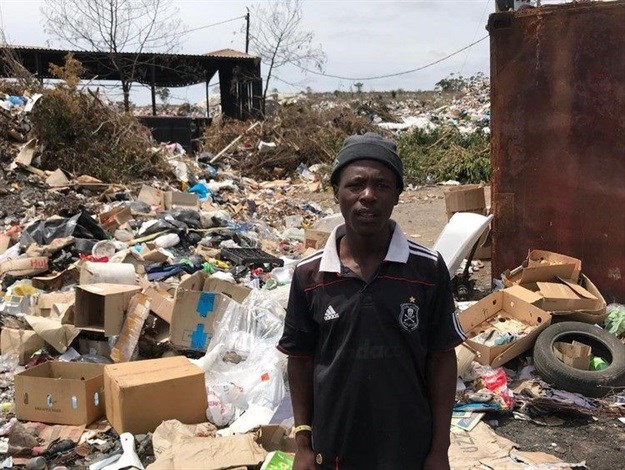Reconsidering South Africa's approach to waste pickers

Notyawa, like the majority of the estimated 100,000 waste pickers in South Africa, started waste picking to stay off the streets and provide for himself in a country with an unemployment rate of 27.1%.
Professor Rinie Schenck is based at the University of the Western Cape and researches waste management. She says that informal waste pickers recycle 90% of the recyclables collected from households in South Africa. This possibly saves municipalities up to R750m in landfill space every year.
South Africa has a national waste strategy. The 2011 version of this recognised the importance of waste pickers in the the recycling process, but did not provide municipalities with guidelines for integrating waste pickers into the formal economy. “Some municipalities ban all waste pickers while others try to accommodate them,” says Schenck.
Notyawa says that Makana municipality treats waste pickers like they are criminals. “The municipality does nothing [to help us]. They used to chase us away, but the owner of the scrap yard convinced them to let us stay.” Attempts to get comment from Makana municipality were unsuccessful.
Waste pickers face many challenges working in the informal waste economy: they are prevented from access to landfills in some municipalities, stigmatised by government and the public, exposed to unhealthy working conditions and vulnerable to volatile price changes on the scrap market.
Schenck says that the only way to overcome these challenges is to integrate waste pickers into the formal waste management sector.
Integrating waste pickers
Melanie Samson of Wits University has been working on a project called “Lessons from Waste Picker Integration Initiatives”. It is funded by the state. The project aims to establish national guidelines for waste picker integration.
The guidelines are being developed by representatives from waste picker organisations, municipalities, industry, government and NGOs. They are expected to be finalised in April 2019.
Samson says that a major challenge has been that each party has a different understanding of the existing recycling system. She says it is important to develop a common understanding with waste pickers sharing their experiences.
Samson has looked to Latin American countries for examples. “In countries like Brazil, Columbia and Argentina, you have well-developed models where cities pay for their service,” says Samson. “When a municipality contracts private companies to recycle, they pay the company a collection fee, while waste pickers [in South Africa] are not paid for the collection services they provide.”
According to Samson, a vital part of waste picker integration is their participation in decision making within the waste management process and recognition of the public service they supply. It also requires what Samson calls “social integration”. She says government and industry need to “transform how waste pickers are seen, appreciated and valued by residents, industry and government officials”.
Original article published on Groundup.